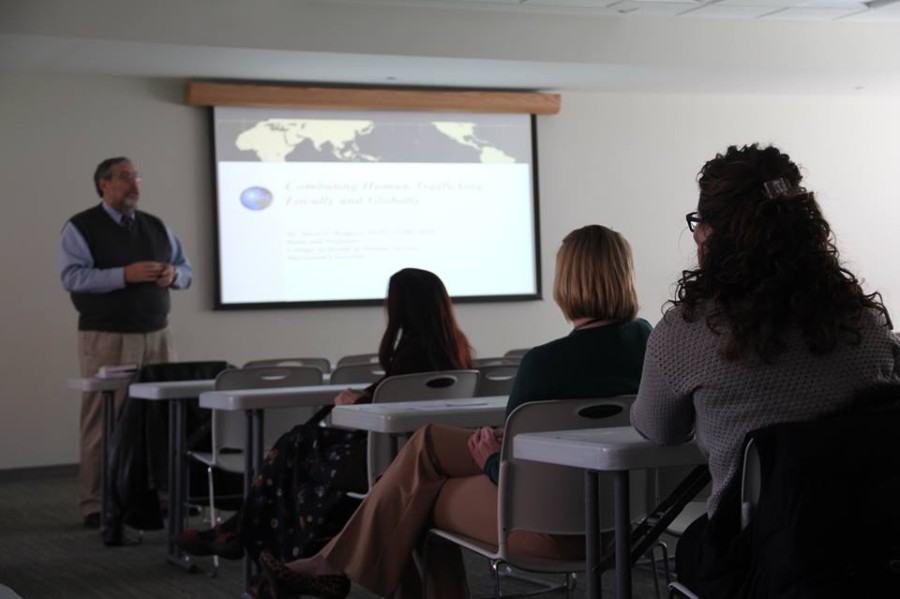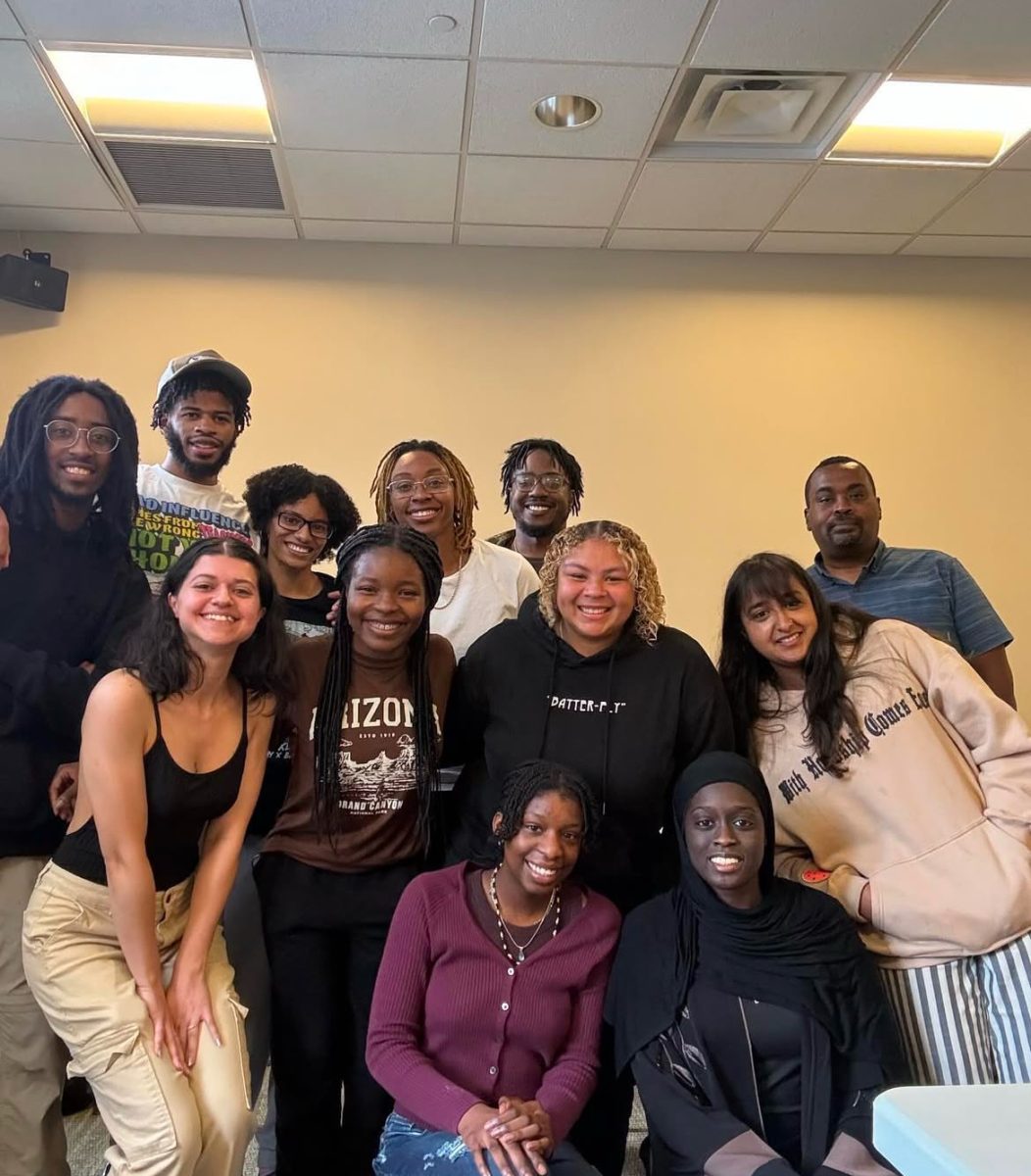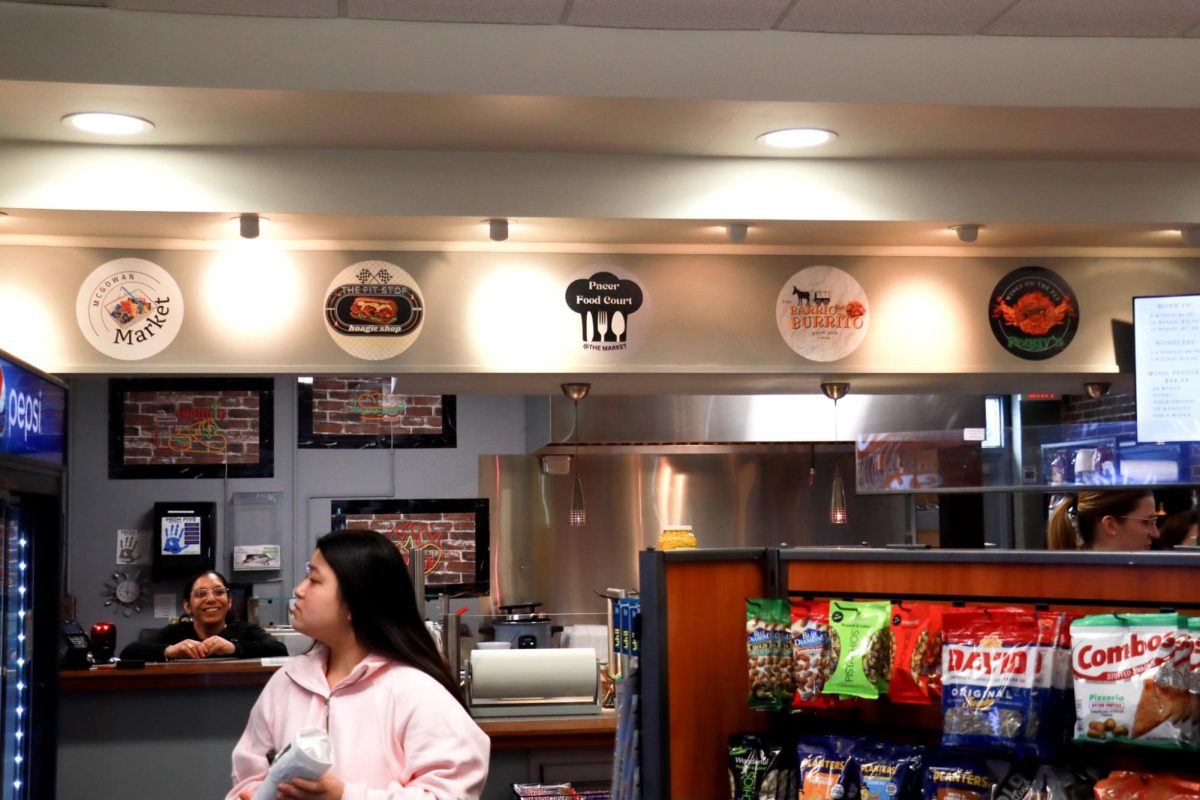Human trafficking–the process of buying and selling human beings in slavery–is often thought to be a global issue happening in faraway, foreign countries. But according to Dr. Mark Rodgers, dean of the College of Health and Human Services, it’s happening close to home, even in Scranton.
“There have been local cases, and if you find one, two, three, cases, there are more,” he said. ”The fact that there have not been a lot of cases [reported] here is not a good sign. This could be a safe haven.”
Several social work professors, along with Rodgers, led a discussion on human trafficking, on Oct. 24.
Rodgers began the event by explaining exactly what human trafficking is. He said that although human trafficking is most commonly about sexual slavery, it also includes forced labor, and even the buying and selling of organs.
Trafficking often goes beyond sex
Mary Kay Pivovarnik, supervisor at the office of youth and family services, discussed labor trafficking at the lecture, pointing out that people can be trafficked and not even realize it is happening to them or that it is wrong.
“You have to look around and think about what’s happening in your own area,” she said, explaining that labor trafficking goes on in homes, factories, and farms.
Pivovarnik said that some common misconceptions about labor trafficking is that a trafficked person agrees to do a job. She said that although this could be true, many people are tricked into trafficking when recruiters from a certain company are sent out to look for people to do a job. The recruiters make false promises in order to get the people to do the job.
“[These situations] change to trafficking when the free will is removed from these people,” she said explaining that when the workers get to the jobs, they are not getting paid the wages they were promised. They do not have fair housing and are told ‘we will hurt you or your families if you choose to leave here.’”
Victims are lured via psychological games
Barns and Edward McNichols, another presenter, explained that victims often are lured by traffickers who make the victims feel special or condition them with drugs. Victims, over time, could be “so in the system” that they do not even realize it is wrong.
Dr. Karen Rich, assistant professor of social work, explained that trafficked people cannot just run away from their captors, like many people would expect them to do.
Rich explained that people who are trafficked often stay within the trafficking system because of certain tricks that their captors will use. For example, the trafficked persons are usually removed from a familiar environment, stripped of identity markers such as clothing or name, and in the absence of social support, they often form a dependence on their captors.
These factors all play a role in the cycle of human trafficking. The trafficked person develops a distorted view of the reality they are living, often giving excuses such as “he loves me in his own way” or “I deserve this.”
Once trafficked people actually escape, they need to find a way to recover. Rodgers explains that this is the other half of the battle. Training and education of social workers and the police force will help with these issues as well. He added that, on average for the United States, a trafficked person will have 20 sexual encounters a day, seven days a week.
“Can you imagine the trauma they go through?” said Rodgers.
New laws meant to curb trafficking
Sunny Sinha, assistant professor of school of social work, said human trafficking is manifesting in Pennsylvania Because Pennsylvania is not in the limelight, it is an easy destination for traffickers.
She said that lawmakers in Pennsylvania are looking toward prevention with the enactment of the National Human Trafficking Resource Center Hotline Notification Act, SB75, a bill to provide services for victims treated as criminals, and SB915, another bill to provide a safe harbor to children exposed to sex trafficking.
According to Rodgers, although Pennsylvania is moving toward prevention, there has yet to be a statewide poster developed.
Education is key to trafficking prevention
Rodgers, who has a history of working internationally and nationally with human trafficking issues and prevention efforts, wants to educate the community on the subject. He said he hopes that education will lead to prevention.
“If we get the word out, we can prevent,” he said, explaining that there is a national human trafficking prevention day held each year on Jan.11. He said that because of the harsh weather in January, a prevention day for the Marywood community is in the works, and will be planned for a day in the spring semester.
Many of the students in attendance were surprised by the information presented at the lecture.
“It’s just crazy to believe [human trafficking] happens. […] Going to a private, Catholic university, I’m so blinded. And like Dr.Rodgers said, Pennsylvania is one of the worst places [for human trafficking], even still, I’m not aware,” said Despina Bubaris, sophomore nutrition and dietetics major.
“Typically people know what’s going on [in concerns to local human trafficking]. The question is getting people to realize saying nothing is just as great of a crime. Even if you suspect [trafficking], reporting is half the battle,” said Donald Barns, a presenter at the lecture.










